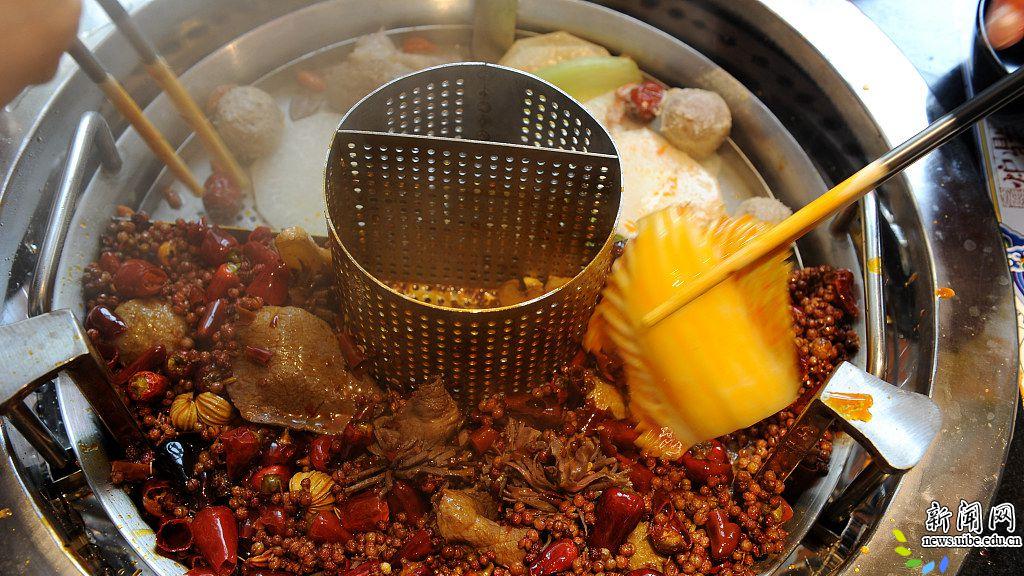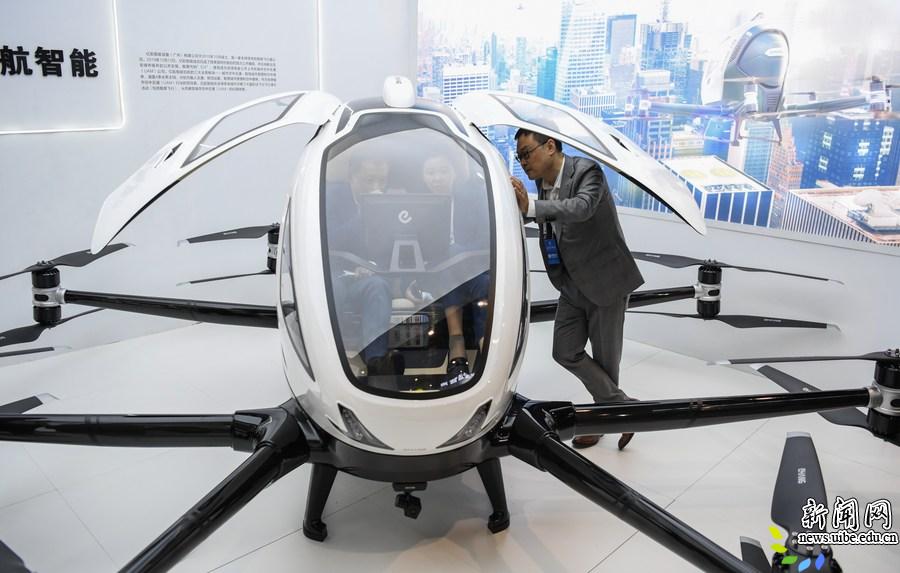CGTN:(高蕾)China's response to the 'Clash of Civilizations'
China's response to the 'Clash of Civilizations'
高蕾
(来源:CGTN-opinion 2021-6-30)

Editor's note: "Roots of China's Growth" is a 10-episode series marking the centenary of the founding of the Communist Party of China (CPC), which has presided over the country's meteoric rise as a global power. The series focuses on 10 fundamental elements of the strategy that has led to China's transformation from an impoverished nation over the past 100 years. "China's Inclusive Culture" is the ninth in the series. The article is part of a special series from CGTN and its international media partners.
After the Cold War, Samuel Huntington, professor of Political Science at Harvard University, put forward the "Clash of Civilizations" theory, arguing that the fault lines between cultures would replace the political and ideological boundaries of the Cold War as the main flashpoints for crises and bloodshed.
Huntington forecast that the paramount axis of world politics would be conflicts between "the West and the Rest," requiring the West to contain the expansion of military strength among non-Western civilizations.
Decades on, does Huntington's thesis reflect how the world works?
The answer from China is no. You can get a glimpse of how diversified cultures peacefully coexist in China through this simple question: What is authentic "Chinese food"? Sichuan hotpot, Cantonese Wonton soup, Peking duck, Hunan's stinky tofu? All of these and more. Diverse cuisines from different regions of China can be found in one city and sometimes even in the same block.

The nation's inclusiveness has made this happen.
This is also reflected in dozens of dialects, the traces of diverse philosophies that can be found in a single style of Chinese architecture, the popularity of traditional ethnic clothing across ethnicities, to name just a few cultural expressions.
China's stability is a result of its open attitude to diversity and not stifling minorities for a land of sameness.
The risk of identity-based conflicts does exist but can be avoided by smart policymaking. Religious and ethnic differences can sometimes lead to chaos and even violence, but China, a multi-ethnic country, has endeavored to build a diversified and cohesive community, respecting differences while promoting underlying unity.
There is no ethnic or cultural discrimination in China. People's ethnic identities are recognized by law. While some ethnic groups in certain countries, out of fear of discrimination, choose not to reveal their racial identity in public life, all ethnic minorities in China have actively participated in the country's political and social life.
Chinese President Xi Jinping has stressed on several occasions that cultural inclusiveness, economic independence, and emotional closeness are the bonds that unify China's ethnic groups. Every achievement by the country is a product of the collective wisdom and sweat of the Chinese people. Indeed, their common identity as a unified national community has become a powerful driving force for the country's growth.
The balance between "differences" and "unity" is vital to China's stability and development.
The relevance of an open and inclusive culture is evident not only in China's ethnic relations, but also in the exchanges between China and the rest of the world. Globalization may have intensified identity conflicts in some cases, but China has embraced foreign cultures with an open mind.

Some advanced foreign cultural and technological products have developed by leaps and bounds in the Chinese market, further enhancing and enriching Chinese culture.
For many years, China was an importer and imitator of foreign technologies. According to the Xinhua News Agency, up to 2000, China's patent applications accounted for only 3.77 percent of the world total, well below the U.S. and Japan.
Yet over the past decade, China has turned from an imitator, follower and traditional manufacturer into an innovator, leader, and smart manufacturer. Its annual patent filings have surpassed Japan's and were double those of the U.S. in 2016. The country is now a global innovation powerhouse and the engine for an increase in the world's intellectual property assets.
China's openness towards foreign cultures and technologies has been a catalyst for the transformation.
Undeniably though, the emergence of "historical nihilism" and "cultural nihilism" in recent years has posed a major challenge to Chinese culture. Therefore, boosting cultural confidence is also an integral part of enhancing cultural identity.
Burying one's head in the sand is not the right way forward. In response to the "clash of civilizations" scenario, China's open and inclusive culture is a solution.
Gao Lei is an associate professor at the School of Marxism, University of International Business and Economics, and a research fellow at the Research Institute of Globalization and China's Modernization. You can contact her directly at gglei9496@sina.com. Please send any other contributions, including expressions of interest in sharing expertise with us, to opinions@cgtn.com.
附原文链接:
https://news.cgtn.com/news/2021-06-30/China-s-response-to-the-Clash-of-Civilizations--11vBJ2eQQrC/index.html
未经允许不得转载:大学门户 » CGTN:(高蕾)China's response to the 'Clash of Civilizations'
相关推荐
- UIBE日本福山大学孔子学院2020年度理事会顺利召开
- 我为群众办实事(三):聚焦全球经贸治理 勇担时代责任使命
- 学校召开党委第五批巡察工作动员大会
- 三八节致全校女教职工的慰问信
- 第六届“同寝同心,筑梦远航”寝室心理文化建设大赛成功举办
- 中国政府网:(屠新泉)为什么说RCEP促进区域内产业链价值链融合?专家这样解读
- 《法治日报》:对外经贸大学国际商法2021年年会暨涉外法治人才培养论坛成功举办
- 贸大研究生热议习近平总书记在两院院士大会中国科协第十次全国代表大会上的讲话
- CGTN:(杨杭军)中欧领导人年度会晤将进一步加强中欧合作、提升全球市场信心
- 共同战“疫” 外语学院李彦:坚守初心,勇担使命
- 校关工委召开2021年“读懂中国”活动推进会
- “70周年校庆”系列学术活动---“数字化时代的创新研究”研讨会成功举办
- 青春正当时:对外经贸大学第51届田径运动会盛大开幕
- 俄罗斯卫星通讯社:(王志民)面对新的挑战,俄罗斯和中国如何相互支持?
- CGTN:(高蕾)为什么国家治理对中国的进一步改革尤为重要
- 澎湃新闻:首都高校战疫好做法【一】:对外经贸联防联控 保障师生安全
- 五育并举 体育先行---我校举行2021级新生体育第一课暨冠军健将报告会
- 尹若蓝,用细节和专业做好志愿服务
- 英语学院召开“不忘初心、牢记使命”专题民主生活会
- 第15届校园英文歌手大赛决赛群星闪耀
新闻公告
- 党委中心组(扩大)专题学习全国“两会”精神 03-16
- 学校召开2022年第5次党委常委会 03-16
- 王敬波副校长出席出版社年度工作会议 03-16
- 《人民日报》:(张小锋)上好冬奥思政课(师说) 03-16
- 学校召开2022年第2次校长办公会 03-16
- 贸大近期科学研究进展(一) 03-15
- 我校成功举办“俄乌军事冲突前景及其影响研讨会” 03-15
- 我校组织新冠疫情日常防控及应急处置工作培训会 03-15
高考招生
- 对外经济贸易大学2017年招生章程 08-05
- 对外经济贸易大学招生章程(2018年) 08-05
- 对外经济贸易大学2015年招生章程 08-05
- 2016年对外经济贸易大学招生章程 08-05
- 对外经济贸易大学2014年本科招生章程 08-05
- 2014贸大远程秋季招生简章(学历) 08-05
- 对外经济贸易大学2012年招生章程 08-05
- 对外经济贸易大学2013年全日制普通本科招生章程 08-05
- 对外经济贸易大学2009年全日制普通本科招生章程 08-05
- 对外经济贸易大学2011年招生章程 08-05
